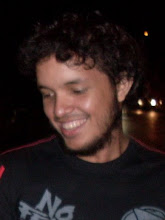Do verbete sobre Agnes Heller na wikipédia:
"About the influence of the Holocaust on her work, Heller said in her interview with Csaba Polony, editor of the Left Curve Journal, that “I was always interested in the question: How could this possibly happen? How can I understand this? And this experience of the holocaust was joined with my experience in the totalitarian regime. This brought up very similar questions in my soul-search and world investigation: how could this happen? How could people do things like this? So I had to find out what morality is all about, what is the nature of good and evil, what can I do about crime, what can I figure out about the sources of morality and evil? That was the first inquiry. The other inquiry was a social question: what kind of world can produce this? What kind of world allows such things to happen? What is modernity all about? Can we expect redemption?"
Apesar de já ter visto vários outros autores (milhares, milhares) das Ciências Sociais falando da Guerra, do Nazismo e do Totalitarismo como fontes da inquietação que os levou a fazer sociologia (e também psicologia) há pouco tempo isso teve um impacto grande em mim. E foi do nada, mas simplesmente pegou. E hoje ainda é uma pergunta que deve ser respondida: Como isto pode acontecer?
Enquanto não soubermos responder, estamos a mercê de que ocorra sempre e de novo. Ou melhor, muito melhor e mais condizente com uma série de autores de sociologias e psicologias críticas, não basta que respondamos a esta questão. Existe uma urgência prática. Precisamos não apenas dizer "que tipo de mundo pode produzir isto", como a indagação de Heller, mas mudarmos este mundo mesmo antes de poder responder à pergunta-chave. Se não nos debruçarmos sobre este mundo e sua mudança estaremos esperando novos Hitleres. Só que, como tudo, o retorno é sempre de formas muito mais sofisticadas. Quem saberá?
Assinar:
Postar comentários (Atom)

Nenhum comentário:
Postar um comentário